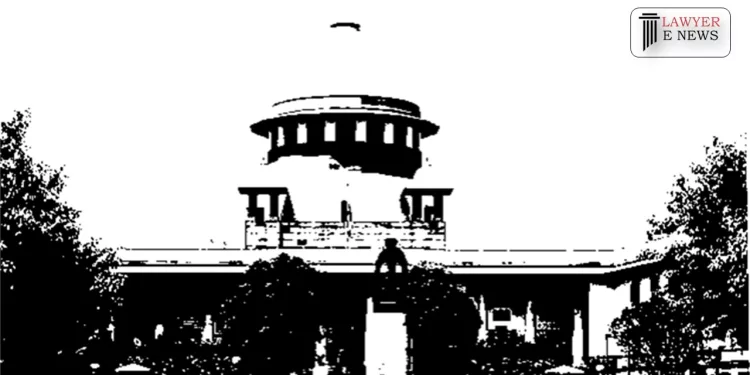Absence of Credible Evidence Leads to Benefit of Doubt: Acquittal in Murder Case: Supreme Court

In a significant ruling, the Supreme Court of India overturned the High Court’s decision in a contentious criminal appeal case, leading to the acquittal of the appellant initially convicted for culpable homicide not amounting to murder under Section 304 Part II of the Indian Penal Code (IPC).
The three-judge bench, comprising Justices B.R. Gavai, Dipankar Datta, and Aravind Kumar, meticulously reviewed the case that involved the alleged assault and subsequent death of a victim. The appellant had been convicted by the Sessions Court for murder under Section 302, IPC, which was later modified by the High Court to a lesser offense.
The crux of the Supreme Court’s decision hinged on the absence of credible and consistent evidence. In their judgment, the Court observed, “In cases of the present nature, where material witnesses are withheld by the prosecution and it is the positive case set up by the defence that he has been falsely implicated for murder though death of the victim could be for reasons attributable to an accidental fall from a tree… this Court as the court of last resort has a duty to separate the grain from the chaff.” This critical observation underlined the Court’s approach in evaluating the presented evidence.
The Court meticulously dissected the FIR, eyewitness accounts, medical reports, and other circumstantial evidence, finding several inconsistencies and gaps in the prosecution’s case. The judgment highlighted the importance of quality over quantity in the evidence, emphasizing that the credibility of witnesses is crucial for establishing guilt beyond a reasonable doubt.
The Court’s decision to acquit the appellant was based on the principle that in the absence of credible evidence, the benefit of doubt must be given to the accused. This landmark ruling reinforces the fundamental legal tenet that an individual cannot be convicted unless their guilt is proven beyond reasonable doubt.
Representing the appellant, Mr. Basant, Senior Counsel, successfully argued the case, highlighting the misinterpretation of evidence by the High Court and the withholding of key witnesses by the prosecution. On the other side, Dr. Aristotle, representing the respondent, defended the High Court’s judgment but couldn’t convince the apex court.
This judgment is expected to have significant implications for the legal system, particularly in terms of evidence evaluation and the rights of the accused. The ruling underscores the judiciary’s commitment to ensuring justice and upholding the principles of fair trial and due process.
Date of Decision: December 12, 2023
SEKARAN VS THE STATE OF TAMIL NADU






